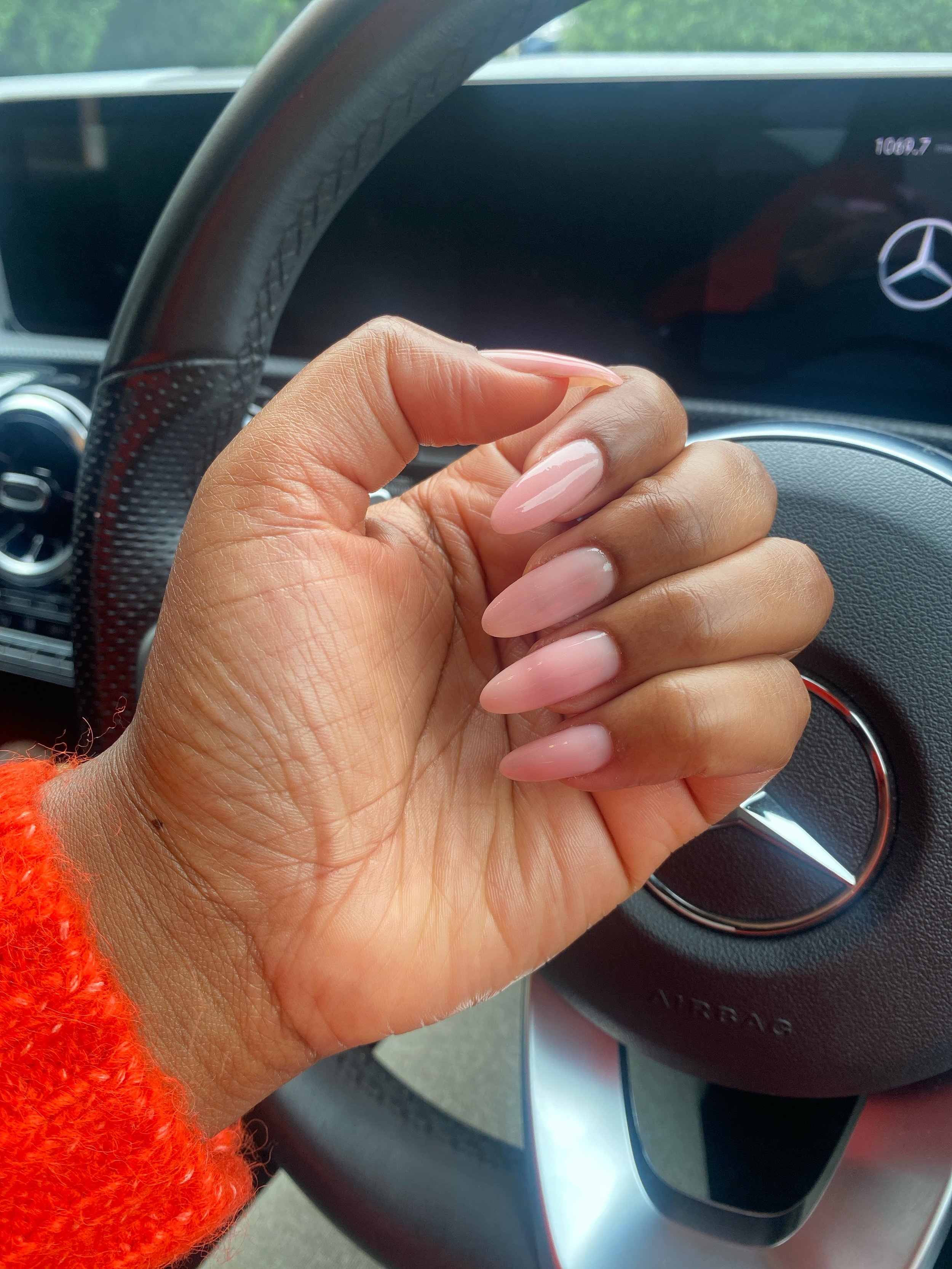What Are BIAB Nails?
Everything You Need to Know About Builder in a Bottle Nails - A New Popular Technique
Are you tired of short, brittle nails and looking for an innovative solution for strong, healthy, and stylish nails? Enter BIAB nails, a game-changing nail enhancement that's increasingly popular in the nail industry. In this blog post, we'll explain what BIAB nails are, discuss their benefits, and guide you through the process of applying and maintaining them. Get ready to level up your nail game with this comprehensive guide on BIAB nails!
What Are BIAB Nails?
A Modern Nail Solution
Builder in a Bottle (BIAB) nails, also known as "gel in a bottle", are a type of nail enhancement that offers both strength and flexibility. BIAB nails are made from a thick, soak-off gel formula designed to add durability and length to natural nails. It is known to be harder than regular gel. This innovative solution promotes nail growth and provides a lightweight, natural-looking finish.
Benefits of BIAB Nails
Strength & Durability
One of the main advantages of BIAB nails is their exceptional strength. The gel formula is formulated to bond with the natural nail, creating a sturdy base that protects and supports nail growth. This durability makes BIAB nails an excellent option for those with weak or damaged nails.
Flexibility
Unlike traditional nail extensions, BIAB nails offer more flexibility and a natural feel. The soak-off gel formula maintains a thin, lightweight structure on the nails, allowing for more comfortable wear and reduced chances of breakage.
Simple Application & Removal
BIAB nails have a straightforward application process, making them an attractive option for both professional nail technicians and DIY enthusiasts. Additionally, the soak-off formula allows for easy removal without damaging the natural nail underneath.
Cons of BIAB Nails
While BIAB nails offer several benefits, there are a few cons associated with this nail enhancement method worth considering before opting for the treatment.
DIY Difficulties
If you're inexperienced in nail application, applying BIAB nails at home can be challenging. They should only be applied by trained individuals. The application requires a steady hand and precision to achieve a professional finish. In addition, curing the nails requires access to an LED/UV lamp, which may not be available to everyone.
Cost
BIAB nails can be more expensive than traditional acrylic. Investing in the tools and materials needed for DIY application may also prove costly for some individuals.
Limited Length Extension
BIAB nails are ideal for providing strength and enhancing your natural nails, but they may not deliver the same dramatic length as acrylic or hard gel nail extensions or gel X tips. Therefore, if you desire significantly longer nails, BIAB nail enhancements might not be the best choice for you. However, you can achieve healthy and lengthy nails with good maintenance and regular BIAB application.
Limited Design Options
When it comes to appearance, BIAB nails offer a smooth, plump, and robust finish, similar to gel. However, the colour range may be limited. This is because BIAB is a stronger and thicker gel, making it difficult for UV lamps to penetrate and cure very dark and pigment-rich shades properly. Generally, BIAB comes in clear or light colours, such as pink.
Nevertheless, for those who prefer bold gel manicures, combining BIAB with regular gel nail colours is a possibility. You can paint a gel nail colour directly on top of the BIAB base or take advantage of the available BIAB shades and apply a topcoat for beautiful nude nails. This allows for versatility in achieving various looks, from simple pink nail designs to intricate nail art creations.
Regular Maintenance Required
Although BIAB nails are known for their durability, they still require regular maintenance. Infills are necessary every 2-3 weeks as the nails grow, and prompt removal is important to avoid any damage to the natural nails underneath.
How to Apply BIAB Nails?
Step-by-step Guide
1. Prep the nails: Start by cleaning and prepping the natural nails, removing any oil, debris, or old polish.
2. Apply a base coat: Apply a thin layer of BIAB base coat to create a strong bond between the nail and the BIAB gel.
3. Apply the BIAB gel: Using a brush, apply a thin layer of BIAB gel to the nails, carefully building up the thickness and desired length.
4. Cure under an LED/UV lamp: Cure the nails under a lamp, following the manufacturer's recommended time for proper curing.
5. File and shape: Once cured, file and shape the nails to your desired finish.
6. Apply top coat: Seal in your BIAB nails with a glossy or matte top coat, curing it under the lamp once again.
7. Cleanse the nails: Remove the tacky layer that may have formed during the curing process with a cleanser.
Maintaining & Removing BIAB Nails
Maintenance Tips
- Regularly moisturize the cuticles to keep the nails healthy and hydrated.
- Use gloves while doing chores involving water or harsh chemicals to protect the BIAB nails.
- Monitor the nails' growth and get infills every 2-3 weeks to maintain their appearance and strength.
Removal Process
When it's time to remove BIAB nails, follow these steps:
1. Gently buff the surface to remove the top coat layer.
2. Soak the nails in acetone or use soak-off gel remover wraps for approximately 10-15 minutes.
3. Gently push off the softened gel with an orangewood stick or cuticle pusher.
4. Clean, nourish, and moisturize the natural nails.
In conclusion, BIAB nails are a versatile, modern nail enhancement that provides strength, flexibility, and a natural finish. Whether you're looking to support weak nails or add a touch of glamour to your style, BIAB nails offer an excellent solution. Try them out for yourself and experience the benefits firsthand. Have you already tried BIAB nails? What was your experience with them? Let us know in the comments below!




